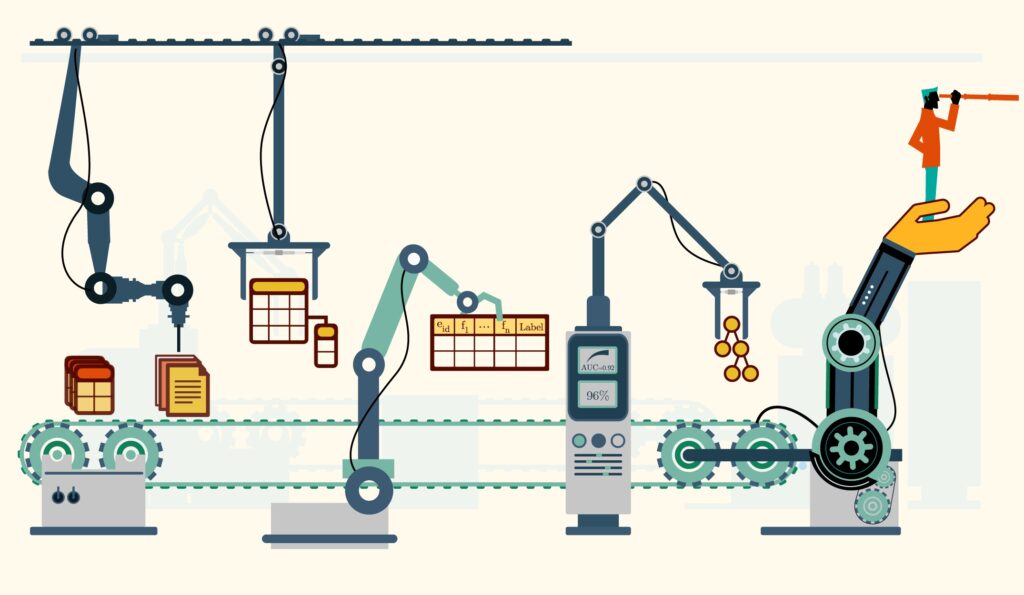By Abhinav Thorat, Research Engineer at Sony Research India

Artificial Intelligence is already transforming our world with generative models. While generative AI is the new buzzword these days, it is a part of the bigger puzzle which has not been solved yet and the next big thing in AI is already around the corner. As a Researcher in the field, I want to draw attention to Causal AI which I believe to the most exciting areas of this rapidly evolving field that will catapult AI to the next level when ready.
In my previous blog “Causal Inference: The Question of ‘Why’ in Machine Learning and Business Analytics” it was established that traditional machine learning algorithms rely heavily on Correlation for developing predictive models and how Causal Inference tries to overcome this with simple principle that is “Correlation is not Causation”.
The field of artificial intelligence (AI) encompasses various kinds of models, each with its own unique capabilities. Among these, causal AI and generative AI stand out as particularly fascinating and promising, the reason for these methodologies in AI to stand out is their ability to come close human behaviour.
Large Language Models thrive on data like a kid in a candy store, but it is also their Achilles’ heel. These deep learning models are trained on millions and millions of data points, but in real-life scenarios, we do not always have that luxury, so here is the radical idea:
What if machines learned a bit more like us? That is where Causality comes into play. As humans, we do not need a mountain of data to perform everyday tasks. Similarly, in the case of Causal AI, we can cut down the data requirement to some extent and let causal reasoning work its magic.
Currently, Machine Learning, struggles to adapt to new situations and explore uncharted territories. LLMs are trained on huge datasets, but they lack that profound understanding we humans possess and naturally, they struggle to reason with the knowledge they have acquired consistently.
Causal AI is like gifting human like reasoning power to AI models, to make connect the dots and understand the cause-and-effect relationship between the variables involved to make better decisions. It is the use of AI to make decisions and predictions based on cause-and-effect relationships rather than just correlational relationships. This technology is gaining widespread recognition for its ability to provide more accurate insights and decision-making capabilities.
So, what exactly is causal reasoning, and how does it relate to causal AI?
Causal reasoning is the process of understanding the relationships between causes and effects. The way that we make sense of the world around us and draw conclusions based on our observations, Similarly, Causal AI uses algorithms and models along with interventions to identify and analyse causal relationships in data, allowing it to make predictions and decisions based on these relationships.
Its importance today lies in the fact that causal AI is a powerful tool that combines the power of artificial intelligence with the principles of causal reasoning to help organisations make better decisions and improve outcomes. By understanding the underlying relationships between variables in data, causal AI can make predictions and decisions based on a deep understanding of the underlying mechanisms that drive these relationships, much like human intelligence.
While machine learning and deep learning primarily focuses on uncovering patterns within data, Causal AI takes a distinctive path by focusing on identifying and analysing causal relationships. For instance, in healthcare applications, Causal AI plays a crucial role in not only detecting patterns in patient data but also unravelling the underlying causes of diseases. This deeper understanding enables more accurate diagnosis and the development of more effective treatment strategies.
One significant differentiation of causal AI from other AI methodologies lies in its information processing mechanism. While machine learning and deep learning heavily rely on vast amounts of data and complex algorithms to make predictions, causal AI adopts a more targeted and causal-driven approach by using treatment interventions. By comprehending the intricate relationships between covariates and treatment variables, causal AI offers nuanced predictions and informed decision-making capabilities, leading to more robust and reliable outcomes.

Implementations of Causal AI have opened exciting possibilities across various domains. In healthcare, it enables the identification of underlying causes of diseases, leading to more accurate diagnoses and targeted treatments. In finance, causal AI helps uncover the drivers behind market trends and provides insights for investment strategies. In manufacturing, it facilitates proactive maintenance by identifying causal relationships between machine behaviour and failures. Additionally, in social sciences, causal AI aids in understanding the impact of policies and interventions by dissecting causal chains. With its ability to go beyond correlation and unveil cause-and-effect relationships, Causal AI empowers industries to make impactful decisions and unlock new levels of understanding in complex systems.
The ability to uncover cause-and-effect relationships in Causal AI holds the potential to revolutionize industries, from healthcare to finance and manufacturing to social sciences. By transcending correlation and diving deep into the realm of causality, we are unlocking new frontiers of knowledge and understanding. As we embrace the power of Causal AI, we embark on a path where machines not only predict but truly comprehend. The future of AI looks causally brilliant!